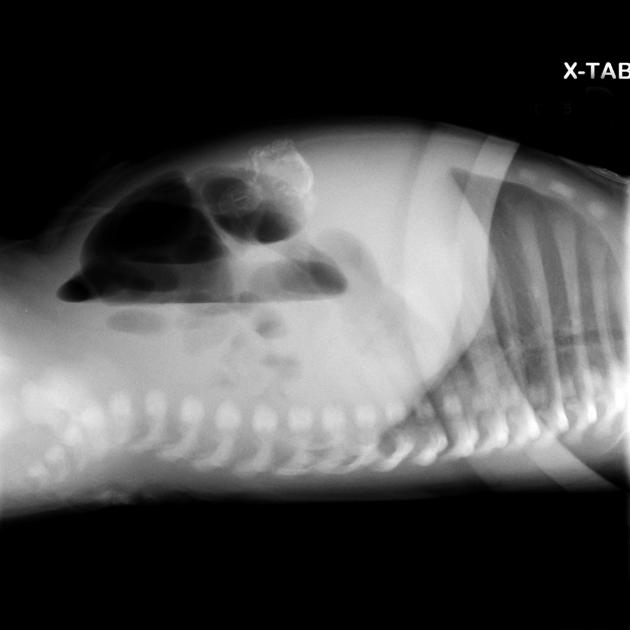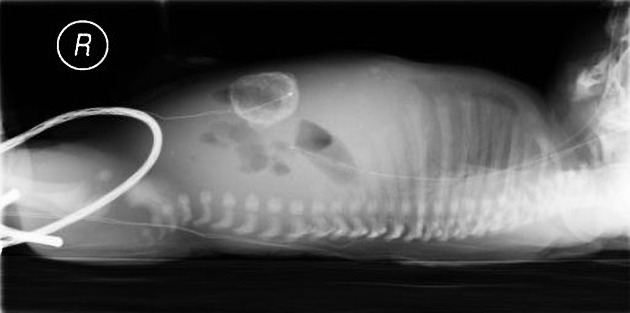Intra-abdominal calcification in a neonate can be caused by a number of pathologies that cause calcification within the peritoneal space or within organs.
Pathology
Etiology
Meconium peritonitis
The commonest cause is meconium peritonitis which is the result of aseptic peritonitis secondary to antenatal bowel perforation. Intra-peritoneal meconium calcifies rapidly resulting in peritoneal calcification although the bowel wall and even the scrotum can be involved.
The cause for antenatal perforation may be meconium ileus, ileal atresia or any other pathology that causes distal intestinal obstruction in a neonate.
Meconium pseudocyst
Meconium pseudocysts can be thought of as a localized version of meconium peritonitis where an antenatal perforation is walled off early and subsequently undergoes calcification creating a cyst-like structure.
Intraluminal meconium calcification
Where meconium in the bowel of a neonate is static, calcification can occur. The result is intraluminal meconium calcification and it may be the result of any distal intestinal obstruction.
Solid organ calcification
- liver calcification in the neonate may occur following congenital infections
- adrenal calcification







 Unable to process the form. Check for errors and try again.
Unable to process the form. Check for errors and try again.